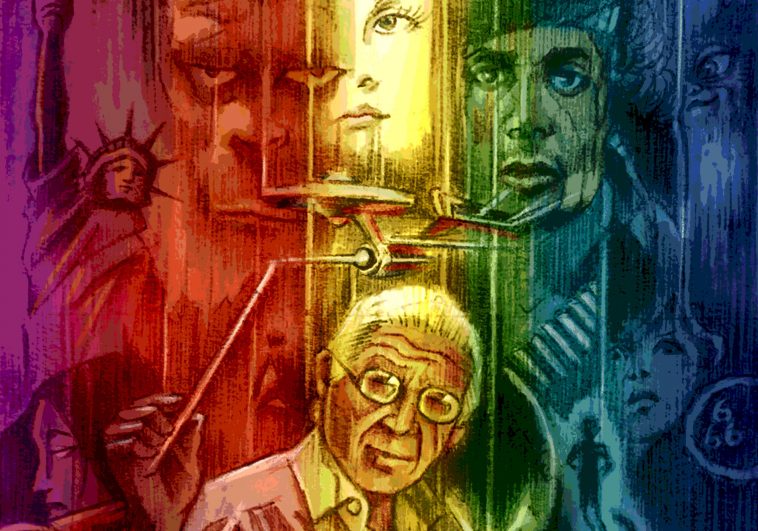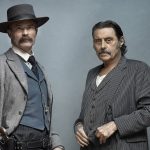Any talk of all-time greats in the field of film composition will invariably involve the likes of John Williams, Bernard Herrmann, John Barry, Elmer Bernstein and Ennio Morricone. Another name who is more than worthy of standing head and shoulders with that illustrious company is the late Jerry Goldsmith. The hugely prolific composer left an indelible mark across five decades in film and TV and was able to turn his hand to any genre, be it action (Stallone’s early Rambo offerings), sci-fi (Explorers, Total Recall, Alien), horror (The Omen trilogy, Poltergeist), war (Patton, Tora! Tora! Tora!) and even superhero (his score for the ill-fated Supergirl movie is every bit as rousing and transcendent as Williams’ work with the character’s Krypton cousin).
Succumbing to colon cancer at the age of 75 in 2004, Jerry Goldsmith’s passing left a huge hole in cinema and even at that age it still felt like he had much to offer. Born in twenties California, the composer broke into the industry in 1950’s initially cutting his teeth in TV, including the seminal fantasy anthology series The Twilight Zone (he would subsequently return to that world when he scored frequent collaborator Joe Dante’s segment of the 1983 big-screen spinoff).
Goldsmith broke into motion pictures in the mid-sixties, but it would be his work on the first Planet of the Apes in 1968 which saw his stock rise considerably. So effective and iconic was his music in Franklin J. Schaffner’s adaptation of that dystopian monkey-led sci-fi that some of Goldsmith’s original cues were paid homage to by Michael Giacchino in the second instalment of the rebooted version of the franchise, Dawn of the Planet of the Apes.
Sci-fi is where Jerry Goldsmith arguably made his biggest impression and his music for Star Trek: The Motion Picture is something of a career highpoint. It’s a grandiose affair which undoubtedly elevates the ponderous, sluggishly-pace film. The track which accompanies Kirk and Scotty’s inspection of the recently renovated Enterprise is pretty much as good as it gets in terms of mainstream cinema scores and it perfectly encapsulates that romanticised notion of traversing the stars.
It’s so good that it was chosen as the opening theme for Star Trek: The Next Generation, and this truncated version is more associated nowadays with that Patrick Stewart-headlining series than the original cinematic spinoff. Goldsmith himself would return to the Star Trek fold when Picard and Co. left the confines of TV to explore the big screen, with his music for First Contact being particularly memorable in his latter resume.
Like all great composers, Goldsmith’s music is both instantly recognisable as his work, yet it never feels derivative. He was able to conjure up moments which really shaped and enriched the films they appeared in. His music for the aforementioned Explorers is an exquisite mix of whimsy and wish fulfilment, while the First Blood score leans on the heroic with the wronged figure of Vietnam vet John Rambo, lifting the material and giving much character to the fairly straightforward revenge and survivalist tale.
His Herrmann-esque cues in Paul Verhoeven’s Basic Instinct helps guide and inform the film’s mystery and intrigue amongst those more outwardly seedy and salacious moments. One of his later gigs for Curtis Hanson’s superlative L.A. Confidential (1997) is an elegant and classy affair which is brimming with lovely period detail. 15 years since his last piece of work – regrettably, for Dante’s derided Looney Tunes: Back in Action – Jerry Goldsmith’s legacy burns bright in an era where the Hollywood film score and theme music sometimes appear to be surplus to requirements, particularly where the likes of Marvel Studios are concerned.
Top five most memorable scores by John Carpenter








Leave a Comment